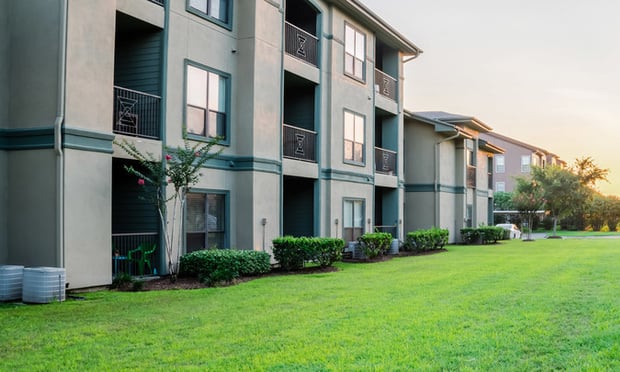DALLAS-After several quarters where thousands of distressed properties were transferred into special servicing, the pace of transfers has moderated, and resolutions are catching up, according to experts who spoke at the 2nd Annual RealShare Distressed Assets conference here at The Adolphus Hotel.
More than 350 executives attended the conference, which was produced by ALM-Real Estate Media Group. The pace of transfers and resolutions was discussed during the conference’s featured presentation: “Meet the Special Servicers.”
“If you look at the pace of transfers and the level of distress in 2010, it would be a record year if not for 2009,” said Kevin Donahue, senior vice president of Midland Loan Services Inc. “That seems to have moderated a bit, and the pace of resolutions seems to be catching up to the pace of transfers. The ratio used to be 4:1.”
Donahue participated in the special servicer panel along with: Michael Carp, executive vice president of asset management for Berkadia Commercial Mortgage LLC; John Maute, managing director of Helios AMC LLC; Timothy Mazzetti, partner & executive vice president of Cohen Financial; and Matt Stewart, vice president of TriMont Real Estate Advisors. Steve Pumper, executive managing director of Transwestern, moderated the panel.
Carp’s firm has also noticed a shift in the number of distressed properties that have been transferred to special servicing. “With our business, we have noticed a leveling off in terms of transfers, and the pace of resolutions has picked up dramatically. Our sales of REO have picked up dramatically, as well, over the past six to nine months.”
It’s important to note that all loans in special servicing – there is about $90 billion there currently – are not there because they are in default. “You’ve got to make a distinction between loans in default and loans in special servicing,” Maute asserted during the discussion. “Of the total, maybe 40% is there for reasons other than default.”
Stewart said CMBS resolutions have outpaced bank resolutions, primarily because of issues related to recourse. “Any bank under the FDIC [umbrella] has to deal with recourse,” he explained. “Banks are not likely to forgive recourse provisions, and those will hinder the pace of resolutions among the banks.”
Despite the slowdown in transfers and the increased pace of resolutions, the panelists believe even more properties will end up in special servicing. “There is a lot of opportunity to move loans into special servicing,” Carp said, acknowledging that more properties will likely fall into the distressed category as more loans mature and are unable to be refinanced.
Mazzetti offered this final thought: “Most of us on the especial servicing side of the business, we tend to be a little gloomy, and there’s not a lot out there that provides us hope that tomorrow will be a better day. Once we work though some of the property level distress related to occupancy, we walk right into refinancing again.”
Want to continue reading?
Become a Free ALM Digital Reader.
Once you are an ALM Digital Member, you’ll receive:
- Breaking commercial real estate news and analysis, on-site and via our newsletters and custom alerts
- Educational webcasts, white papers, and ebooks from industry thought leaders
- Critical coverage of the property casualty insurance and financial advisory markets on our other ALM sites, PropertyCasualty360 and ThinkAdvisor
Already have an account? Sign In Now
*May exclude premium content© 2025 ALM Global, LLC, All Rights Reserved. Request academic re-use from www.copyright.com. All other uses, submit a request to [email protected]. For more information visit Asset & Logo Licensing.








